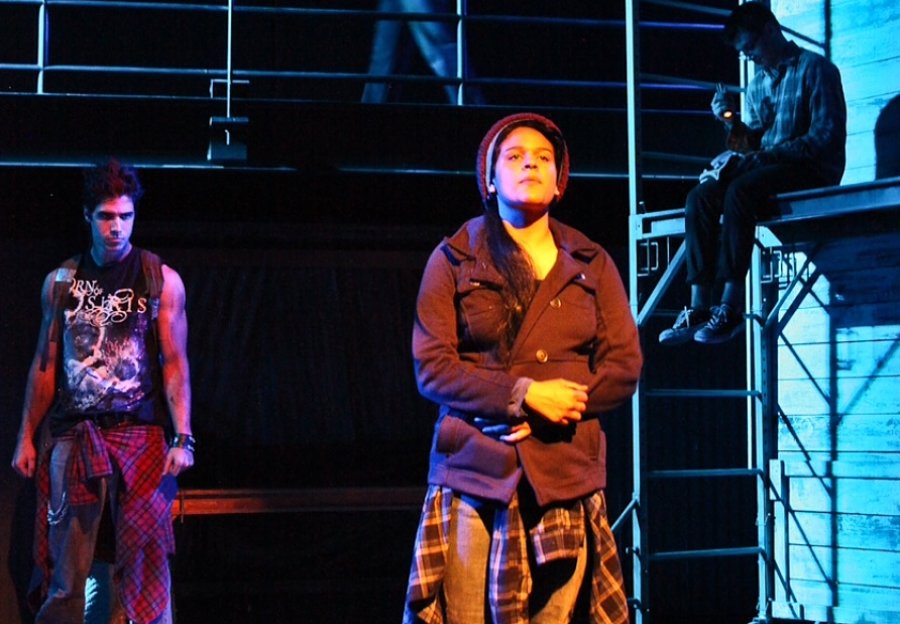LOS ANGELES: Visitors to Ashland, Ore., may come away with strong impressions of the town’s world-class Shakespeare festival or of lovely, verdant hikes in Lithia Park. If they spend any time on the streets of the town, though, they’re also likely to have a memorable encounter with Aaron the Goat Man, a homeless philosopher often glimpsed around town with at least one hooved animal in tow. Aaron is the unofficial mayor of a thriving subculture of ex-hippies and wanderers in the region who “might say they’re ‘home-free’ as opposed to homeless,” explained playwright Lisa Loomer, the author of Living Out and Distracted. Loomer’s new play Homefree takes its title from that optimistic-sounding phrase, and who based a pivotal character on Ashland’s thoughtful goat guru. The play debuts at the Road Theatre in North Hollywood and runs Sept. 15-Nov. 8, under Michael Matthews’s direction.
Loomer, who moved to Ashland from Los Angeles some years ago (in part to give her young son what she felt would be “a lot of space—in every sense—to grow”) and said she was intrigued by the differences between the street populations in New Age-y Ashland and nearby middle-American Medford.
“The homeless people in a particular place really reflect the place itself,” said Loomer. In Medford, for instance, they are inclined to be young people fleeing conservative homes because they’re gay, as is the character of Franklin in Homefree, or because of domestic abuse, as are the characters JJ and Breezy. They may also be influenced, as is JJ, by the rightwing skinhead subculture of nearby Grants Pass.
At one point in Homefree, JJ and Breezy meet up with some older, tent-building Ashland “travelers” who typify the town’s crunchier environs and who are more likely to see their situation as a defiant lifestyle choice than an economic hardship. Loomer said she got a chance to investigate these contrasting cultures while working in a shelter in Medford.
“Like canaries in a mine, I think they tell us a lot about the country we are living in,” said Loomer of the region’s cast-outs. “Medford, the red-state town, with its churches and meth houses, and Ashland, the blue-state town with its theatre and its liberalism—we’re both failing these kids.” While theatre tourists in Ashland “have to pass by these kids on the way to the theatre, I started thinking, ‘What if they then had to encounter them—in the theatre?’ What if you couldn’t pass by?”
Loomer hopes to explore a similar red-blue divide, and create a similar sense of unavoidable encounter, in her commission for Oregon Shakes next year. In Roe, she’ll dramatize the remarkable story of Norma McCorvey, the plaintiff in the landmark abortion-rights decision Roe vs. Wade, who later became a born-again Christian and anti-choice activist. Loomer, who was raised in Mexico and considers herself most at home in L.A. or New York, has found her Oregon stay educational about the “other” America—which means, in her case, the white Christian part.
“There is little ethnic diversity here,” Loomer conceded, “but there is political, economic, and religious diversity, for sure.” She hopes that Roe is a play “where two sides of an issue coexist onstage. It’s not always a fashionable thing to do. But I want to be able to have people of both camps, of both worlds, to be able to sit through the play without running out screaming.”


